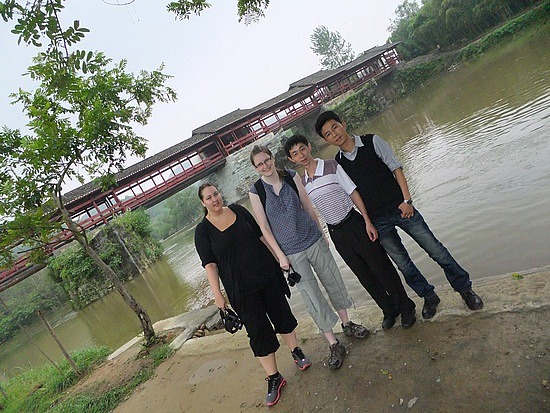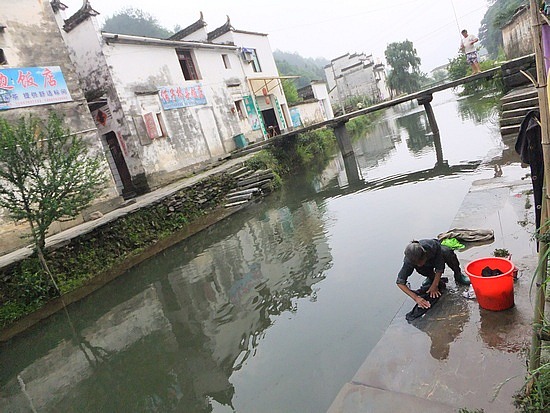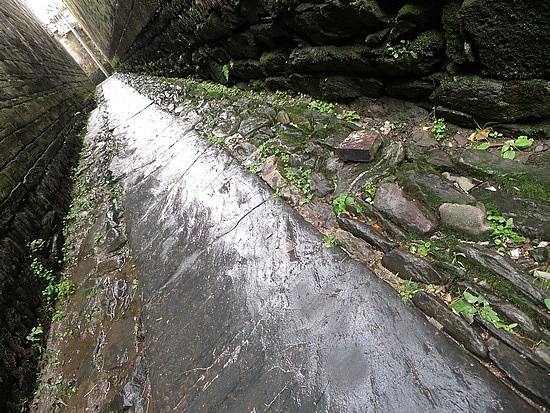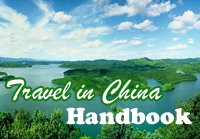Lofty Lushan Mountain
Temples in Hidden Places
On the First of August
Wheels by the Water
Share your travel story with regional@chinadaily.com.cn
Wuyuan county & villages adventure
( blog.travelpod.com )
Updated: 2011-06-07
 |
|
If given an opportunity to live in such a breathtaking area for a year, I am very sure that I would jump at the chance. |
In a country as large and diverse as China it is not often that I find myself climbing the same mountain, walking the same ancient alleyways or slurping my noodles in a location I have previously visited, nor do I find myself wishing to as there is just too much to see. That was until I was offered this chance to return to the north east of Jiangxi province to simply teach one lesson in exchange for another day walking the ancient village alleyways found in the Wuyuan area and, if given an opportunity to live in such a breathtaking area for a year, I am very sure that I would jump at the chance.
The Wuyuan area is famous for having some of the most splendid countryside in China. It is also home to at least fifty beautiful ancient riverside villages.
Walking through these old villages offers refreshing views of hills covered in yellow rape, of green farmland and luxuriant camphor trees along with creeks with small rapids. The villages lie along small rivers, ancient trees stand on riverbanks and old farmers leisurely drive ducks towards a pond all coming together to form a typical Chinese countryside scene.
 |
|
Old China remains preserved in enticing panoramas of ancient bridges, glittering rivers, stone-flagged alleyways and the slow meandering pace of traditional rural life. |
Old China remains preserved in enticing panoramas of ancient bridges, glittering rivers, stone-flagged alleyways and the slow meandering pace of traditional rural life.
Originally the Wuyuan area belonged to Huizhou in Anhui province, but when the PRC was formed, the Chinese government separated it from the Huizhou district and it became part of Jiangxi province. The Wuyuan area features oodles of Huizhou local culture and architecture and is surrounded by Zhejiang province to the east and Jingdezhen city to the west. It is only a few hours away from Huangshan Mountain to the north and Sanqing Mountain in the south.
Wuyuan's Huizhou buildings were built during the Tang Dynasty (AD 618 to 907), mostly around AD 700 and thankfully its remoteness and inconvenient transportation has protected its villages.
Thus its idyllic scenery has remained un-noticed by the Chinese tourism radar until the last five or so years. All villages enjoy a stupendous riverside setting, hung with lanterns, threaded by tight alleys and tightly bound together by quaint bridges. Come night time, they become more serene as their riverside lanes glowing softly under red lanterns and old fashioned style street lamps.
 |
|
Thus its idyllic scenery has remained un-noticed by the Chinese tourism radar until the last five or so years. |
Locals navigate the darker quarters by torchlight.
Among the vegetables draped from bamboo poles, chunks of cured meat can be found hung out to dry from crumbling, mildewed buildings. Washer women can be found scrubbing wads of wet clothing along the village streams banks, plump chickens are seen scampering about, all of the interiors of each ancient hall and traditional home lay open inviting inquisitive glances whilst peasant families can be found offering cheap beds to wayfarers.
The first time I was in Wuyuan area was several 'Summer Beers N Noodles Adventures’ ago when I spent nearing a week in the area sleeping in several villages along with little Wuyuan city. I was glad we had a private car and a local to take us to all sites and we visited them all at a comfortable pace leaving from Dexing city in the morning and returning later that night.
Fitting in a delicious dinner of local food in Wuyuan city on the return journey.
The only downside, (which was personal as it was both Lisa and Catrine’s first visit) was not spending lazy nights beneath the red lanterns which in turn gave the opportunity to spend endless hours in the surrounding rice fields and mountains. I am sure though that if I am to return to teach in Dexing that I will fill many weekends recapturing those precious memories.




